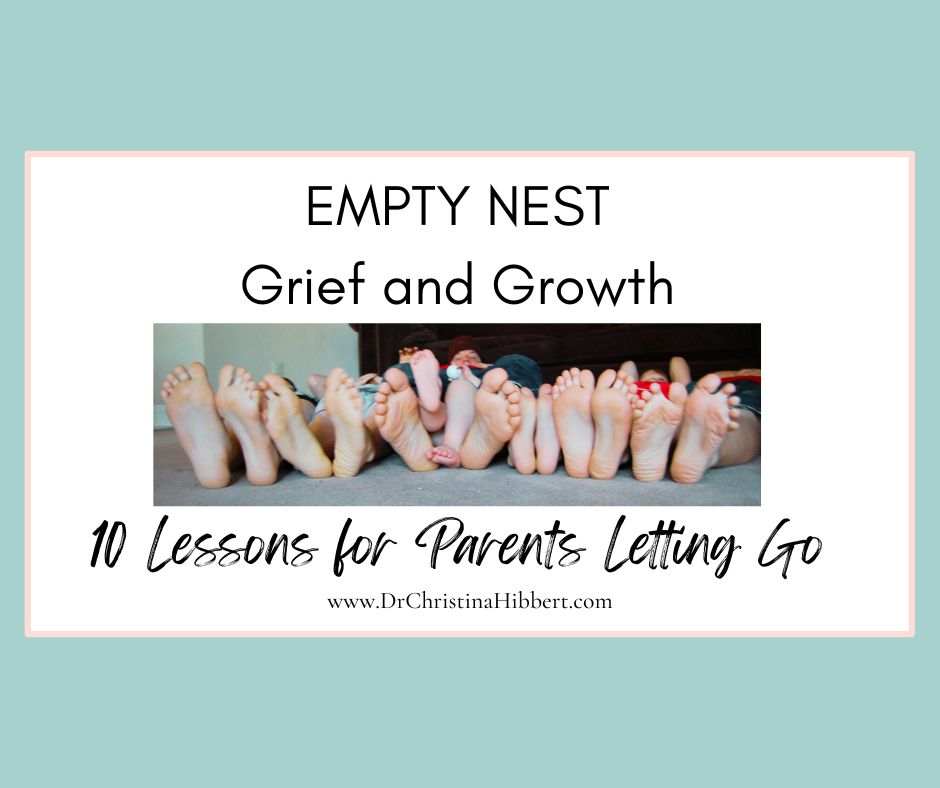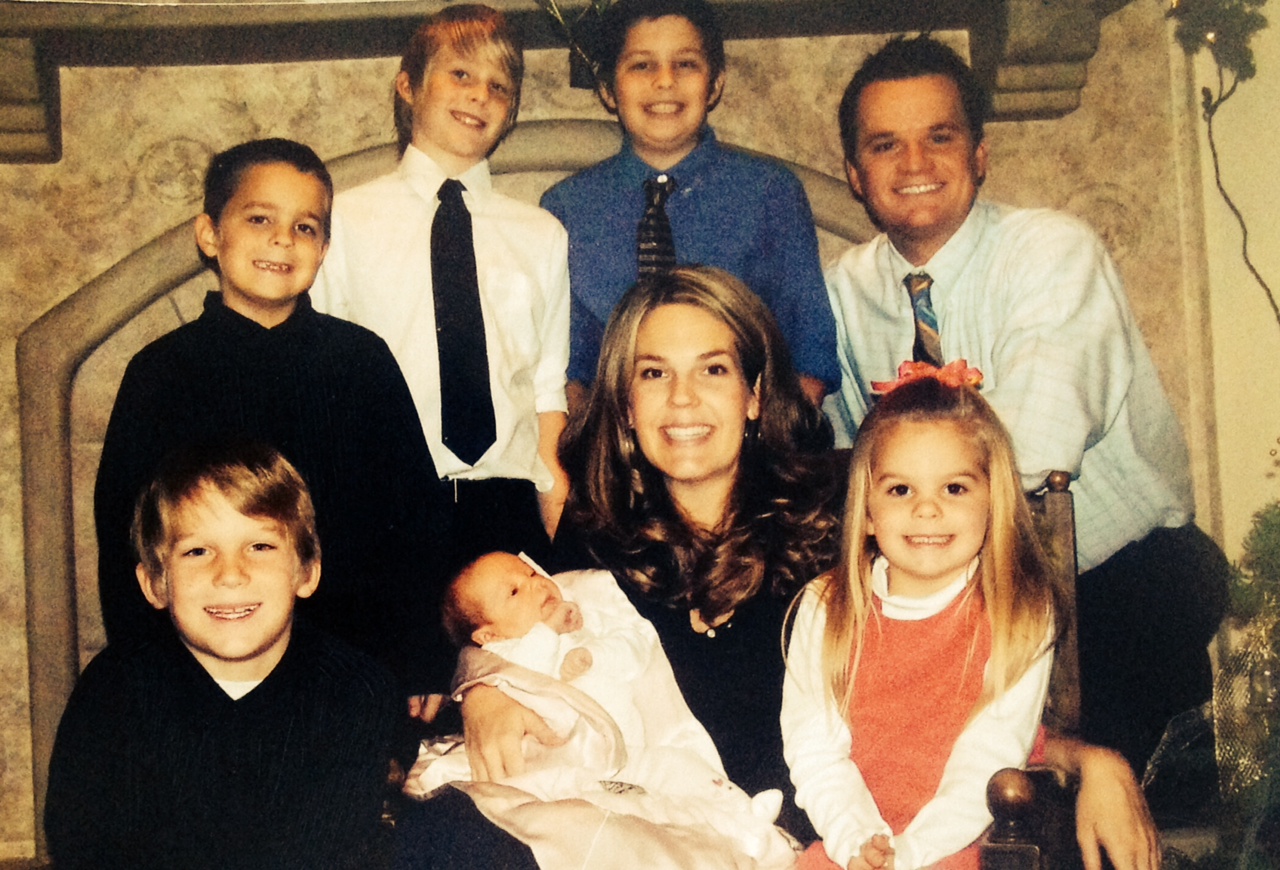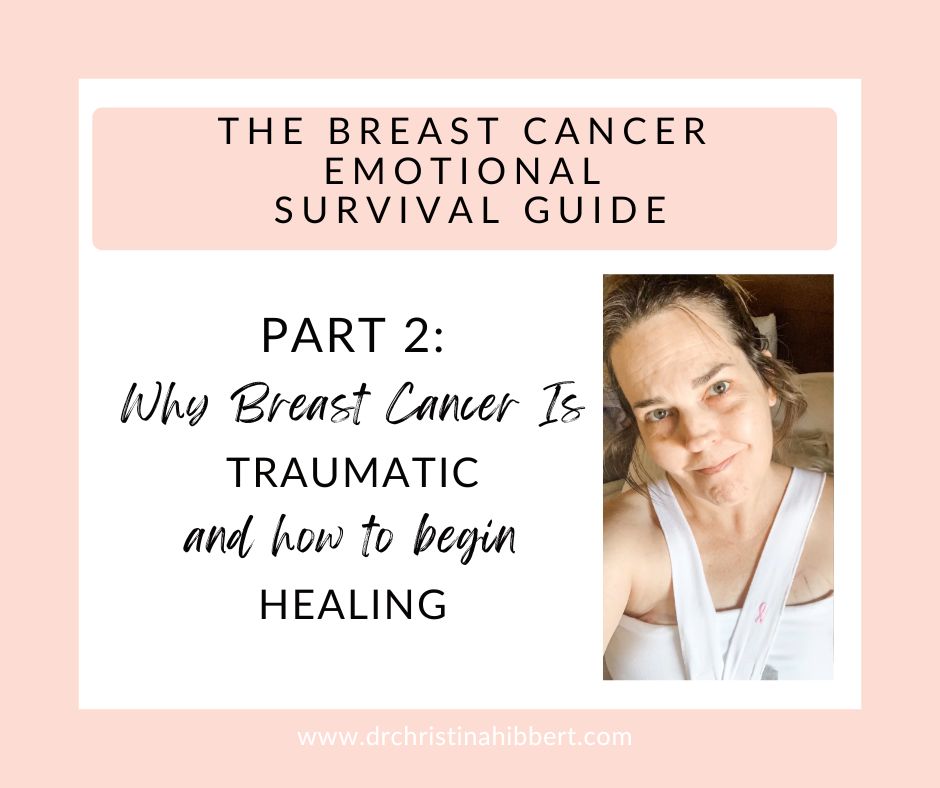How do we cope with the grief of letting our kids fly the nest? And how do we grow as much as they do, when they leave?
I wrote about my experiences when my first of six left home, and in this article I’m revising it to focus on the lessons we can learn as we face empty nesting.
I’m rewriting this because just this week I launched my sixth, and last, child, off to college, so my husband and I are now official empty nesters. I wrote about this experience too, and how hard it can especially be after cancer and chronic illness. (You can read it here.)
It’s tough! The grief is real. And you, my friend, are not alone.
Launching our children
My oldest child was officially away at college. After weeks of shopping, packing, and trying to teach him every last-minute skill I could think of, we’d moved him into his dorm. I hugged him tightly, then got in the car and drove four hours home—bawling the entire way.
I’d heard of moms crying when dropping their “babies” off at college, but honestly, I never thought that would be me. I’d been mentally preparing for months—reminding myself time was short and soaking up the little moments. I thought I was ready.
But the truth? Though I was mentally prepared, I was not emotionally prepared.
How could I have been? How can we ever fully prepare for the moments in parenting when we have to let go?
The truth is, we can’t know what it will feel like until we’re standing in the middle of it, living it.
Our first family-of-8 Christmas picture, just one month after Shannon and 3 months after Rob had died.
Parenting, Loss, and Letting Go
Five days after dropping my son at college, the tears had slowed, but the emotions had lingered. And I realized something important: these moments aren’t just about milestones. They’re about loss.
Parenting is full of “letting go” moments:
- when they stop nursing
- when they start preschool or kindergarten
- when they distance themselves as teens
- when they leave for college
- when they marry
- when they have children of their own
Each one is beautiful and exciting—and each one is also loss. And loss is hard.
10 Lessons on Letting Go as Children (and We) Grow
This week I launched my youngest off to college, and my husband and I became official “empty-nesters”. This has brought a whole new world of emotions, especially after dealing for the past 6 years with breast cancer and now trying to live with chronic illness. I wrote about it here.
I still don’t have it all figured out, but there are some truths I’ve discovered—lessons that can help us through the many transitions of parenthood.
1. Seek support—you’re not alone.
On the drive home from dropping my oldest, I posted a tear-streaked selfie on Facebook. I felt ridiculous, sobbing over something so natural, but I wanted support. And the comments helped me realize I wasn’t the only one who cried all the way home. It’s ok, and even helpful, to reach out and ask for support, especially from those who’ve been in your shoes and “get it.”
2. Give yourself time and space.
Everyone had opinions: “Don’t be sad, this is good for him!” or “Now you’ll have more time for work!” But I still had five kids at home, and I wasn’t sad in the way people assumed—I was just feeling. It took time to sort through what this transition actually meant for me, and that’s just how it works. We need as long as we need to feel all we need to feel, so we can move forward and heal.
3. FEEL what you feel.
At first, I couldn’t even name my emotions. No thoughts, just pure tears. Eventually, I realized the best thing I could do was FEEL—Freely Experience Emotion with Love. I’ve done the same after dropping my last. I told myself, “It’s okay if you feel depressed or grief-stricken for a while.” I give myself permission to sit with whatever feelings come.
4. Recognize this is grief.
I know now that what we’re experiencing feels exactly like grief—heartache, heaviness, exhaustion. And that’s because launching children is a loss, and grief is the natural response to loss. We can not only acknowledge our grief, but actively deal with the grief. (This article might help.)
5. Change is hard, even when it’s good.
This wasn’t just about my son or daughter leaving; it was about family life changing forever. Since my oldest left, it’s been an 11 year process of everything changing, and that’s how it’s supposed to be. We’ve had a wedding, a grandbaby, and so many comings and goings over the years–and it’s just going to keep happening. It’s important to recognize that even when the change is good, it can still be hard—and painful.
Summer 2024, with our grown children, plus son’s fiance, and new daughter in law!
6. Actively choose to let go.
When I’ve dropped my kids, as I drove away, I prayed: “He/she’s Yours now, Lord. Be with him/her when I cannot.” It’s tough to let go. But it’s also a choice. We choose to let it go, oever and over, as many times as we need. Letting go has been both heartbreaking and freeing.
7. Learn to live in the paradox.
I felt joy and pride right alongside deep sorrow. I felt excitement for them, even as I felt sadness for me. Parenting is full of these paradoxes, and learning to hold both is part of the journey.
8. Appreciate the “good-hard.”
Life has given me plenty of “bad-hard”—loss,trauma, illness, cancer, grief. So I remind myself that this kind of “hard” is actually good. Letting go means they’re growing, and that’s what we want for our children.
9. Don’t minimize your loss.
Just because someone else has faced a “bigger” hardship doesn’t mean your pain isn’t real. Every loss is valid. AND…every loss must be grieved. Acknowledge your losses, and then, let yourself grieve them.
10. Remember: when we let them go, we grow too.
Every time our kids grow, we have the chance to grow right along with them. I often have said, “Parenting is the perfect soil for personal growth.” It’s true. We can learn so much as we parent, love, and launch our children. That’s what family is all about—stretching, changing, and loving through the process.
Parenting is tough
Letting go is one of the hardest parts of parenting. It comes in many forms, and none of us are ever fully prepared. But when we allow ourselves to grieve, to feel, and to grow, we can find beauty even in the hardest transitions.






